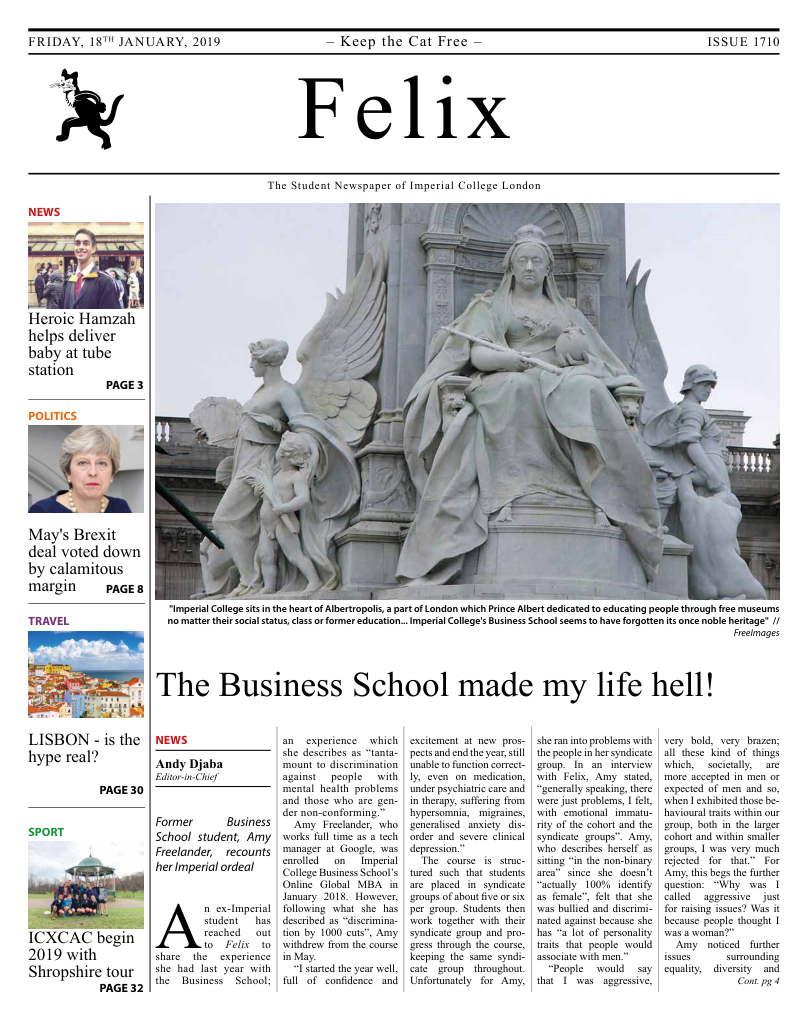Obscure Shakespeare receives a fun new revival
Not considered a Shakespeare masterpiece by any measure, the Royal Shakespeare Company breathes some life into The Merry Wives of Windsor and manages a hilarious ‘Essex’.

The comedy centres around the lascivious Sir John Falstaff, known to many from Shakespeare’s Henry IV plays – The Merry Wives of Windsor is said to have been commissioned by Elizabeth I herself, who must have felt her beloved Falstaff deserving of his own story. This play uses this fact as a means of introducing the characters, as in the beginning they come in one-by-one with their names projected onto the background – I found this immensely helpful in keeping track throughout the play due to the many characters.
In classic Shakespeare style, the story at times feels like there’s a bit too much to keep up with, with bizarre sub-plots including marrying off the young Anne Page, a confusing dispute between a Welsh person and French doctor, a jealous husband posing as ‘Master Brook’ to trick Falstaff, and the involvement of Falstaff’s servants in his downfall. However, the main story is ultimately that of Falstaff being the subject of Mistresses Ford and Page’s schemes – and rightly so, as Falstaff is attempting to womanise them simultaneously (owing to his debt and need for money).
Little does he know they’ve been tipped off – and boy do they have a lot in store for him. And so the hilarity ensues, as they repeatedly ruin Falstaff’s foolish attempts to seduce them. The standout performances were those of the titular characters, Mistresses Ford and Page (Beth Cordingly and Rebecca Lacey). There was such incredible and succinct repartee between them, and every scene they had together lit up the stage with flawless comedic timing.
David Troughton, a veteran Royal Shakespeare Company actor, also commands the stage in every scene he appears in, perfectly depicting a lecherous and loud Falstaff, and as expected, nails every bit of verse he has. Naturally then, the best scenes were the ones with all three of these characters, and there was some fantastic physical comedy alongside the banter – notably the scene where Falstaff manages to get himself into a wheelie bin to hide from Ford.
The costumes and set design – a weird, never-before-seen mix of Tudor and Essex, with neon and glitter amok – were fantastic, and the strange dance scenes at the beginning and end only added to the quirkiness of the whole play. There was never a dull moment; there’s humour for even those who typically don’t understand Shakespeare’s jokes. Fiona Laird has taken one of Shakespeare’s often overlooked plays and adapted it for a fun, silly evening for all.
-4 stars









